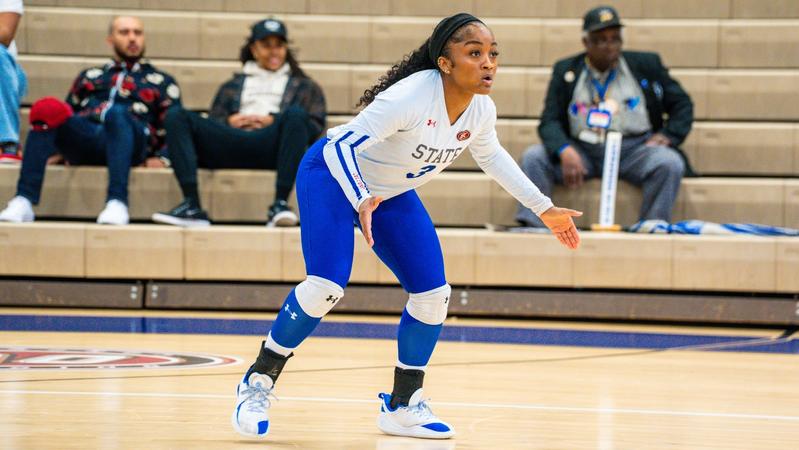Motorsports
Brad Keselowski’s ‘ruined’ Talladega day increases his NASCAR playoff pressure
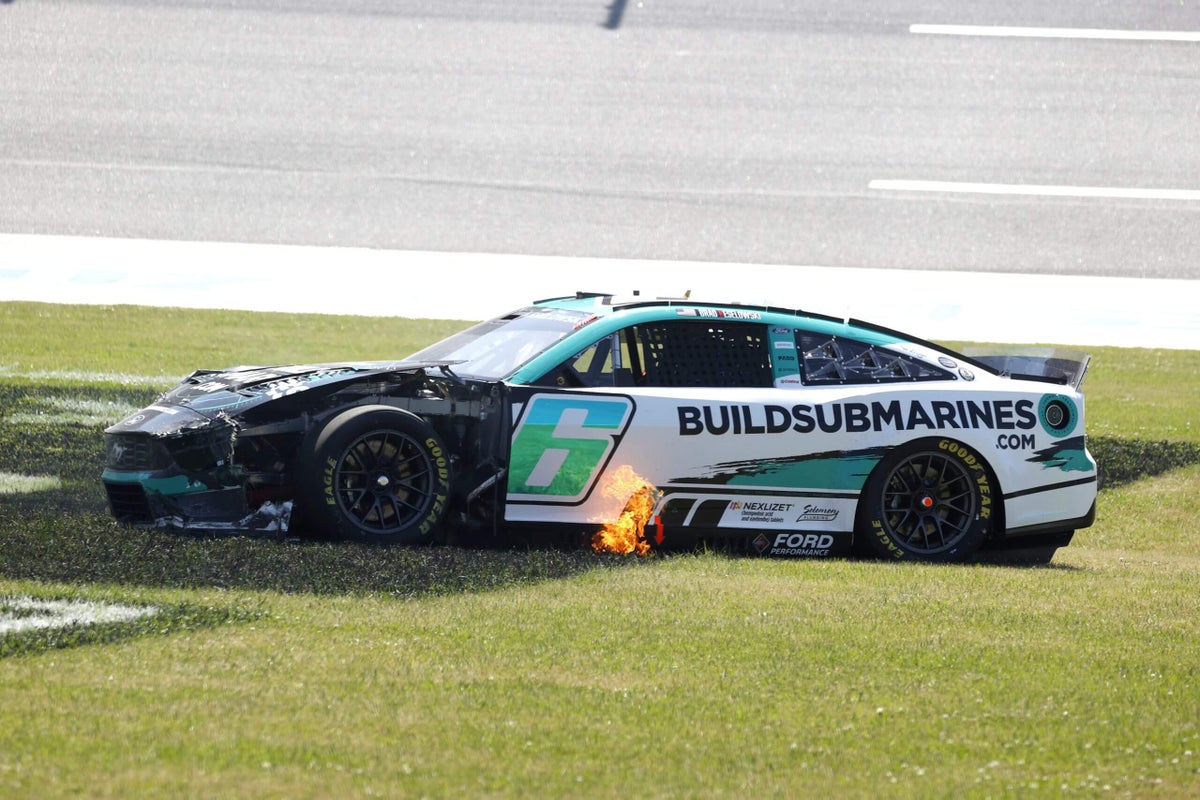
Sure, it’s been a miserable season for Brad Keselowski. But Sunday’s race at Talladega Superspeedway was the perfect time to change all of that.
Keselowski is tied for second on Talladega’s all-time wins list (six) with Jeff Gordon and Dale Earnhardt Jr. The only driver ahead of them is The Intimidator, Dale Earnhardt Sr.
So who cares if Keselowski hadn’t led a lap all season? Who cares if he didn’t have a top-10 finish? Talladega, it seemed, would be the perfect place to turn his year around.
Bookmakers in Las Vegas agreed; the 2012 NASCAR Cup Series champion entered the race with the second-best odds of winning.
And yet there was Keselowski on Lap 42, stranded in the infield grass after a crash. He was having a fine race and was fourth in line for the group of cars he was pitting with during the first pit stops of the day, but it appeared the trio in front of him slowed more than he anticipated. Keselowski darted to the right but collided with Kyle Busch and then an oncoming Ryan Blaney.
Suddenly, his day was over. Another disappointment, another finish outside the top 25 — his seventh in 10 races this year.
The NASCAR data analyst Daniel Cespedes noted Keselowski’s average finish of 26.1 is not just the worst start of his career; it’s the worst 10-race stretch he’s had over 17 years of Cup racing.
“I hate that it ruined not just our day, but several other people’s days,” Keselowski said after Talladega. “I don’t think I could do anything different.”
No one — absolutely no one — is ever out of the playoffs until the checkered flag waves at the end of Race No. 26. All it takes is one victory to secure a berth in the 16-driver field, and even the most miserable of seasons can be salvaged with one great moment.
Just look at Harrison Burton, who last summer won at Daytona to jump from 34th in the Cup standings — last among full-time competitors — straight into the playoffs.
Keselowski, a future Hall of Famer with 36 career Cup Series victories, can certainly pull off a victory nearly any week. His cars at the team he co-owns, RFK Racing, have shown speed this season with teammates Chris Buescher and Ryan Preece. Keselowski won just last season at Darlington Raceway, which isn’t a track where flukes happen.
Except actually winning is easier said than done, and Talladega would have been a great place to snatch a much-needed victory while relieving some pressure. Instead, Keselowski is still 32nd in the point standings and far out of a playoff berth if he doesn’t win one of the next 16 races.
And while there are still 16 more chances, how realistic is it that Keselowski would suddenly go win at intermediate tracks like the next four points races — Texas Motor Speedway, Kansas Speedway, Charlotte Motor Speedway and Nashville Superspeedway? How realistic is it that he would win on a road course, which accounts for another four races before the playoffs?
You get the point. The opportunities dwindle quickly.
That’s what made a superspeedway like Talladega so tempting for Keselowski to target after finishing second there in both races last season. So now what? Is Keselowski in must-win territory, with 83 points and 17 drivers separating him from a playoff spot should he not find victory lane?
For his part, Keselowski acknowledged in a meeting with reporters last week that while 2025 wasn’t his best start, “I’ve got my eternal optimist glasses on and I see the potential.”
“The potential for this team is higher than any team I’ve had the last four or five years, and we just have to recognize it,” he said. “There’s a lot of talent and a lot of fresh faces and the mistakes that come with that. We have to clean that up and recognize our potential.”

“The potential for this team is higher than any team I’ve had the last four or five years,” Brad Keselowski says, “and we just have to recognize it.” (Sean Gardner / Getty Images)
The biggest change was at the crew chief position. Keselowski hired Jeremy Bullins, his former Team Penske crew chief, to reunite a successful, winning pairing that was only broken up when Keselowski left to become RFK’s co-owner/driver. At the time, Bullins was still under contract to Penske and was unable to follow Keselowski to the new organization.
But although there were high hopes to start the season, the team hasn’t found success yet for whatever reason.
“Hopefully, soon we’ll recognize the two steps forward with all the changes we made, but we definitely took a step backward in the process,” Keselowski said. “I feel like that can strike at any moment, and we just need to trust our process.”
The problem for teams in similar positions in the past is the regular season can quickly slip away. And that can be said even for teams who expect to win regularly; three of last season’s Championship 4 drivers (Joey Logano, Ryan Blaney and Tyler Reddick) have yet to score a victory this season, nor have expected winners like Chase Elliott, Ross Chastain and Chase Briscoe.
But as Keselowski noted with Logano’s example last season, all that matters is catching fire at the right time. Logano was 14th in the standings before he won an improbable overtime race at Nashville last summer, then parlayed it into a championship.
“The current format, for better or worse, doesn’t particularly value the start to the season; it values the end of the season and a small amount in between,” Keselowski said. “In that case, you’re just looking to put together all the right pieces to get hot when it matters.
“Whether that’s right or wrong, it is the format, and over the years, I’ve come to better terms with that.”
Now Keselowski and his team just need to put it into practice.
(Top photo of Brad Keselowski after crashing in Sunday’s race at Talladega Superspeedway: Jeff Robinson / Icon Sportswire via Getty Images)
Motorsports
Front Row Motorsports Updates Competition Department Roles

Front Row Motorsports (FRM) today announced several leadership updates within its Competition department ahead of the 2026 NASCAR Cup and Truck Series’ seasons.
Drew Blickensderfer will transition from his prior role as Crew Chief of the No. 4 and Noah Gragson and will become the organization’s Competition Director. In his new role, Blickensderfer will work alongside current Technical Director Seth Barbour, who will continue to lead the organization’s technical direction and engineering efforts. A 17-year NASCAR Cup Series Crew Chief veteran, Blickensderfer leaves the pit box with four wins, 30 top-five and 85 top-10 finishes, most notably winning the 2009 Daytona 500 with Matt Kenseth and 2021 Daytona 500 with Michael McDowell.
Grant Hutchens will assume the role of Crew Chief for Noah Gragson and the No. 4 team. A native of Omaha, Nebraska, Hutchens brings extensive NASCAR experience, beginning his career with Evernham Motorsports, where he spent five years. Hutchens later moved to Richard Childress Racing where he served as the race engineer for Paul Menard, Kevin Harvick, and Ryan Newman. Most recently, Hutchens worked at Team Penske, where he joined Ryan Blaney’s team during Blaney’s NASCAR Cup Series rookie season in 2016 and served in several different lead engineering roles before assuming the position as the organization’s test team Crew Chief in 2025.
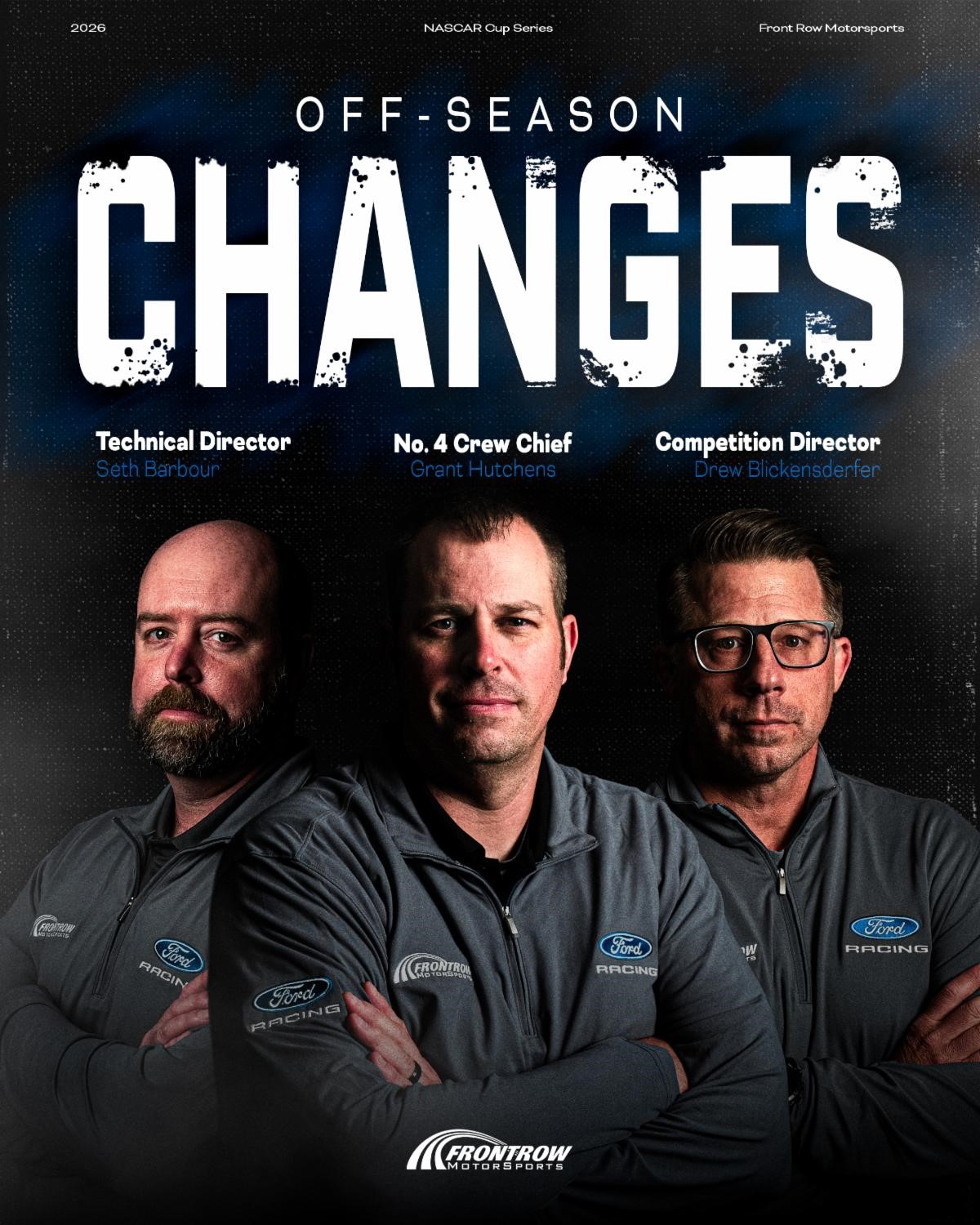
FRM also announced that Jonathan DeHart has joined the organization as the Aerodynamics Manager, overseeing the team’s aerodynamic operations. DeHart brings a strong background to Front Row Motorsports, having previously held key roles most recently as the IndyCar Aero Car Chief for GM Racing and as Body Production Manager at Hendrick Motorsports.
“We are very fortunate, and I am extremely excited to add experienced, talented people like Grant and Jonathan to leadership roles in the organization”, said Front Row Motorsports team owner, Bob Jenkins. “With the inclusion of our Truck Series teams, we operate (5) full-time teams and I’m equally as excited to have Drew turn his attention to providing direction and guidance to our crew chiefs and competition group as a whole. Having Drew in this new role for us and Seth being able to focus on the technical aspects within our team, it puts us in a better position to execute on the track and achieve our goals in 2026.”
The changes go into effect immediately as the team has testing planned this month at North Wilkesboro (Cup) and Rockingham (Truck) heading into the season’s first Cup Series event at the Bowman Gray Clash on February 1st.
Motorsports
Porsche mourns the loss of Hans Herrmann

Dr. Ing. h.c. F. Porsche AG mourns the loss of Hans Herrmann. The former racing driver passed away on January 9, 2026, at the age of 97. During his motorsport career, he achieved more than 80 overall and class victories, the vast majority of them for Porsche.
Herrmann not only competed in all major endurance races and European hill climb championship events, but also conducted countless test drives at the Weissach Development Center. “The passing of Hans Herrmann has deeply affected us all,” says Thomas Laudenbach, Head of Porsche Motorsport. “He was one of Porsche AG’s most successful factory racing drivers. With the victory at the 24 Hours of Le Mans in 1970 in the Porsche 917, Richard Attwood and he made history.” The sports car manufacturer from Zuffenhausen owes him not only many triumphs but also the historic milestone he set, making Porsche a serious competitor in endurance racing.
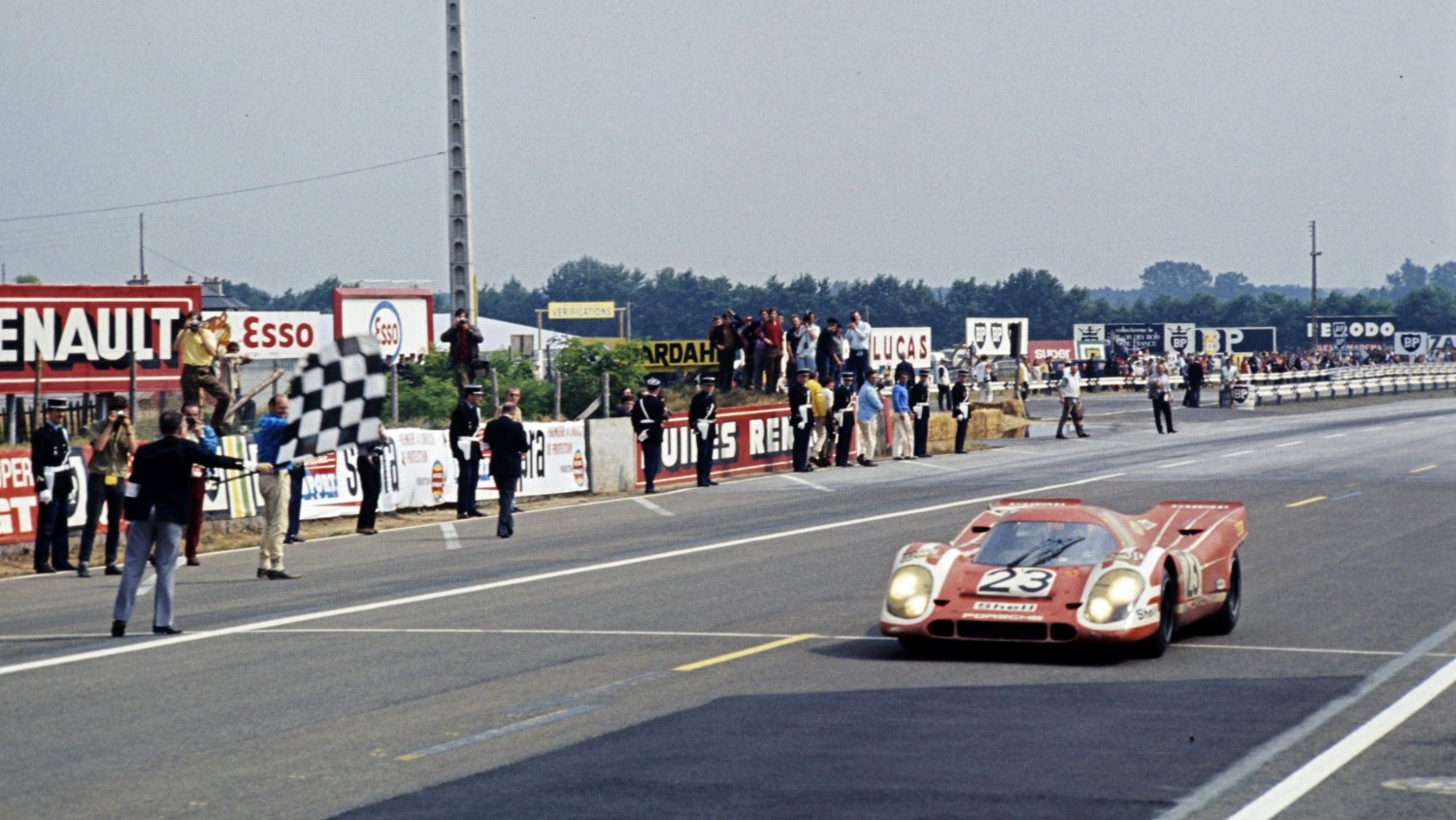
Hans Herrmann was born on February 23, 1928. He completed training as a confectioner, intending to later take over his mother’s café. However, this did not come to pass, as his talent and passion lay in motorsport. In 1952, the Stuttgart native started his first circuit race at the Nürburgring in a Porsche 356 – and won. The following year, he achieved a class victory at the 24 Hours of Le Mans in a Porsche 550 Coupé. Also in 1953, Herrmann claimed the title of German Sports Car Champion. Mercedes-Benz then recruited him into their factory team, making him a colleague of Juan Manuel Fangio, Stirling Moss, and Karl Kling. In 1954, Herrmann continued to race for Porsche in smaller displacement classes and won class victories in the 550 Spyder at the Carrera Panamericana and the Mille Miglia. The latter race is remembered for a particularly spectacular moment: Herrmann drove the open mid-engine sports car under a closing railway barrier. He later captioned the image as a postcard with the words: “You have to be lucky.”
Herrmann repeatedly returned to Porsche
Luck would remain a constant companion throughout his career. After Daimler-Benz withdrew from motorsport, he spent years with Maserati, B.R.M., Borgward, and repeatedly Porsche. In 1960, Olivier Gendebien and Herrmann triumphed with a 718 RS 60 Spyder at the 12 Hours of Sebring – Porsche’s first overall victory in a World Sportscar Championship race. Shortly afterwards, Herrmann and Joakim Bonnier won the Targa Florio in the Porsche 718 RS 60 Spyder, and in the same year, he was celebrated as Formula 2 European Champion with the Porsche 718/2. In 1962, he switched to Carlo Abarth to become a factory driver for the Viennese constructor from 1963. In 1966, he returned to the Porsche factory team alongside drivers Jo Siffert, Vic Elford, Rolf Stommelen, Udo Schütz, and Gerhard Mitter.
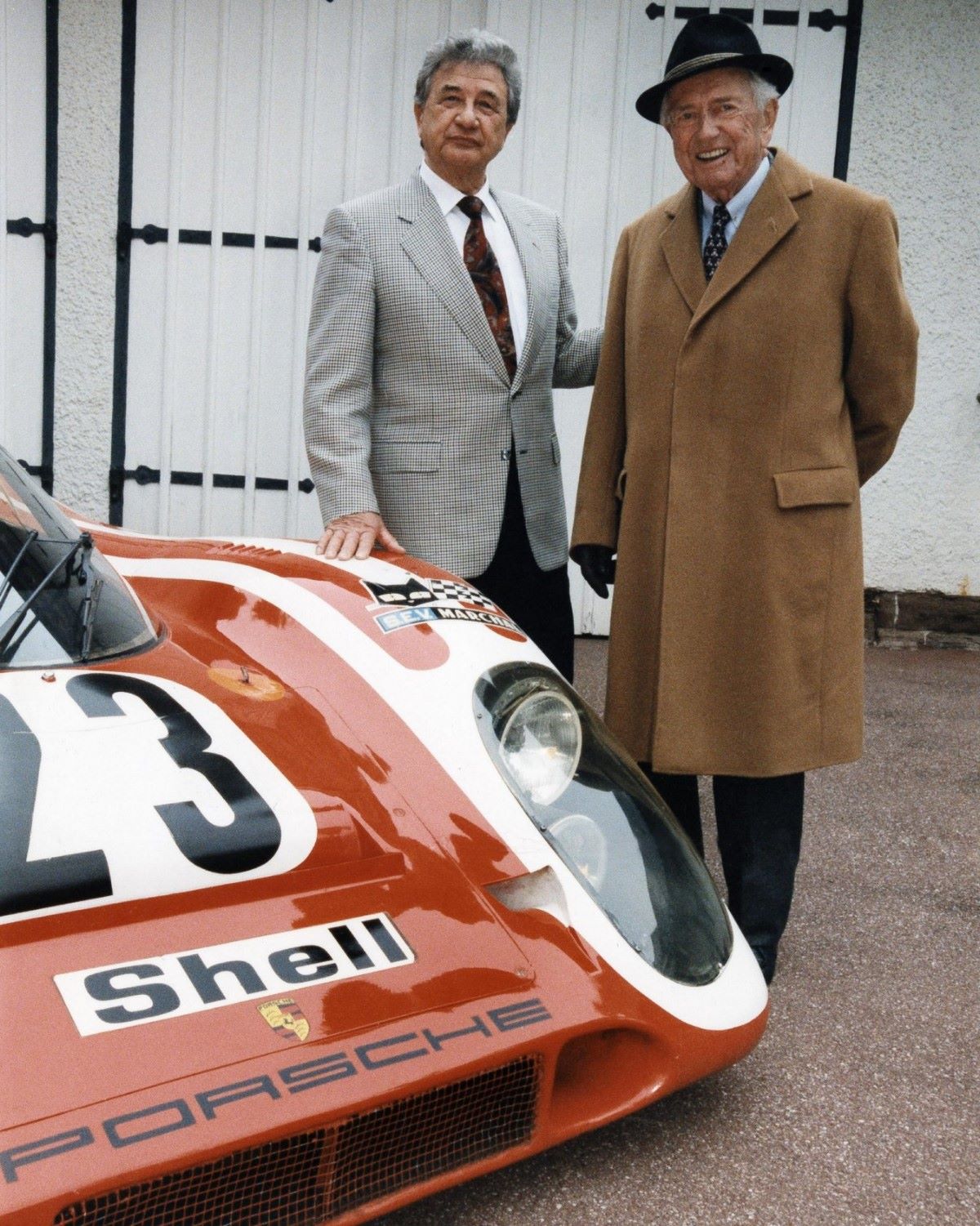
A victory for the history books
In 1970, Herrmann faced the toughest race of his life in the Porsche 917 at the 24 Hours of Le Mans. “In 1969, I narrowly lost the victory to Jacky Ickx after we overtook each other several times in the last hour and a half of the race. In 1970, Ferdinand Piëch ensured we had a stronger engine and a real chance of winning. Winning exactly one year after the narrowly missed victory at Le Mans was, of course, special. It was also Porsche’s first overall victory – and it was my last race,” Herrmann recalled. He had already lost too many friends by that June day; his wife was worried, and Herrmann himself was clear: “It can’t be that I’m so lucky, and at some point, this phase might end.”
The endurance and single-seater specialist has become one of the most reliable and consistent racers of all time in motorsport history. During his career, Herrmann raced for many manufacturers, but his closest and most formative connection was always with Porsche. He accompanied the Porsche Museum for decades after retiring from active racing at the age of 42, participating in driving events at renowned classic car events worldwide. Hans Herrmann leaves behind his wife, Magdalena, two sons and a grandson
Motorsports
Java House Grand Prix of Arlington Event Schedule Announced
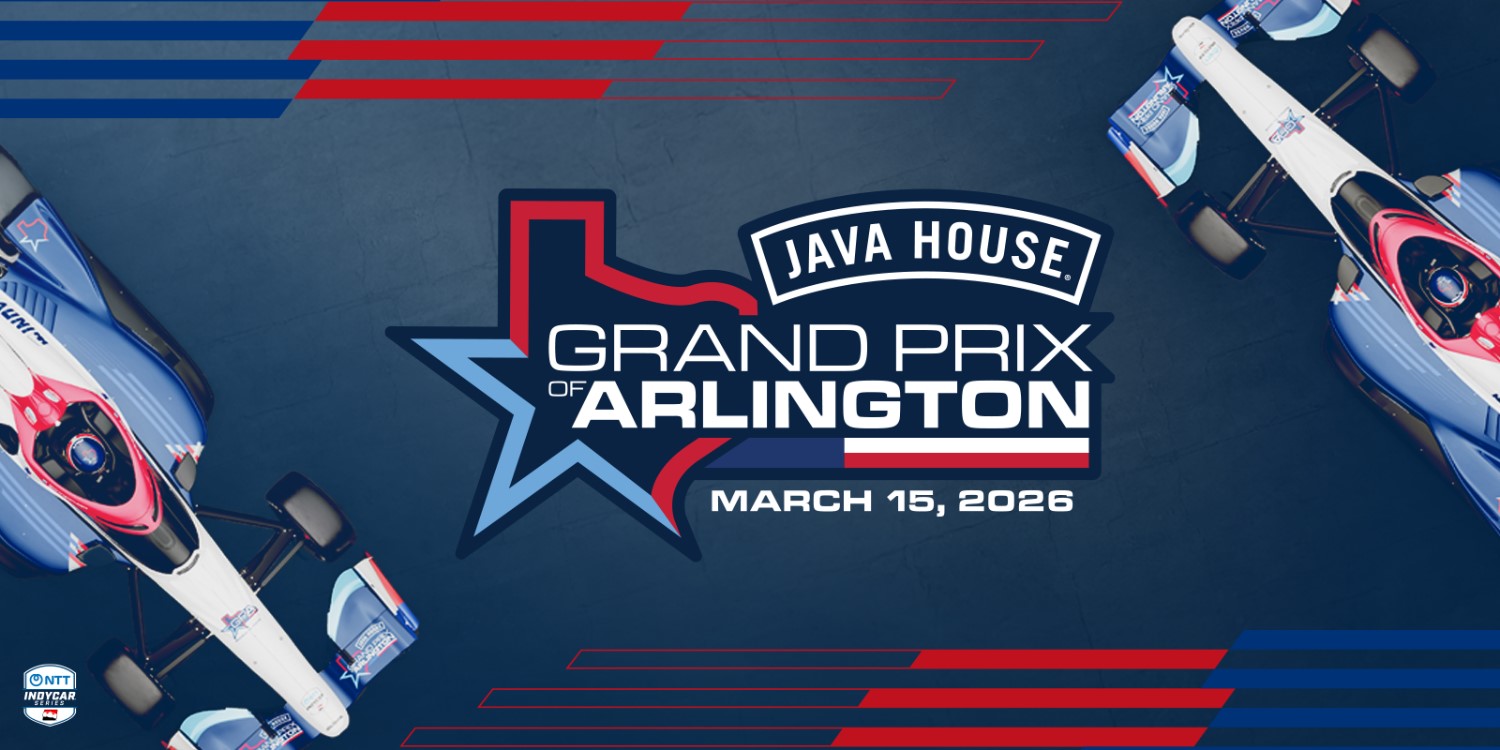
The Java House Grand Prix of Arlington will feature three days of on-track action, including the NTT INDYCAR SERIES, INDY NXT by Firestone, Toyota GR Cup Series, and USF Pro 2000 Presented by Continental Tire. The weekend includes practice sessions, qualifying, support races, and fan experiences.
Additional entertainment to be announced next week.
The Java House Grand Prix of Arlington is a premier motorsports event bringing high-speed competition and immersive fan experiences to the heart of Arlington, Texas. Designed to celebrate innovation, athleticism, and community, the event transforms the city into a dynamic race-week destination, featuring elite racing, engaging activations, and unforgettable moments for fans, teams, and partners alike. This isn’t just another race, it’s a transformative moment for North Texas, blending world-class racing, live entertainment, and community events in one of the nation’s fastest-growing sports hubs.
Schedule
*All times are listed in CT and may be subject to change.
Friday, March 13, 2026
- 9:00 am: All Admission Gates Open
- 9:05 am – 9:35 am: Toyota GR Cup Series Practice 1
- 11:30 am – 12:05 pm: USF Pro 2000 Practice
- 12:35 pm – 1:05 pm: Toyota GR Cup Series Practice 2
- 2:00 pm – 2:45 pm: INDY NXT by Firestone Practice 1
- 3:05 pm – 4:25 pm: NTT INDYCAR SERIES Practice 1
- 4:45 pm – 5:00 pm: Toyota GR Cup Series Qualifying (Race 1)
- 5:15 pm – 5:45 pm: USF Pro 2000 Qualifying
Saturday, March 14, 2026
- 8:00 am: All Admission Gates Open
- 8:35 am – 9:55 am: NTT INDYCAR SERIES Practice 2
- 10:15 am – 11:00 am: INDY NXT by Firestone Practice 2
- 11:20 am – 12:05 pm: Toyota GR Cup Series Race 1
- 12:25 pm – 1:05 pm: USF Pro 2000 Race 1
- 1:35 pm – 3:00 pm: NTT INDYCAR SERIES Qualifying
- 3:30 pm – 4:00 pm: INDY NXT by Firestone Qualifying
- 4:20 pm – 4:35 pm: Toyota GR Cup Series Qualifying (Race 2)
- 4:55 pm – 5:35 pm: USF Pro 2000 Race 2
Sunday, March 15, 2026
- 7:30 am: All Admission Gates Open
- 8:00 am – 8:45 am: Toyota GR Cup Series Race 2
- 9:05 am – 9:35 am: NTT INDYCAR SERIES Warm-Up
- 10:00 am – 11:00 am: INDY NXT by Firestone Race
- 11:15 am – 12:10 pm: NTT INDYCAR SERIES Pre Race
- 12:10 pm: NTT INDYCAR SERIES Race
Motorsports
American Communications Construction and Aloha Beauty Lounge Extend Primary Sponsorship With NHRA Top Fuel Driver Tony Schumacher Through 2032

TOMBALL, Texas (Jan. 9, 2026) – Texas-based American Communications Construction (ACC) and Aloha Beauty Lounge have each extended its primary sponsorship of NHRA Top Fuel driver Tony Schumacher and the No. 15 Top Fuel dragster he pilots for Rick Ware Racing (RWR) through the 2032 NHRA Mission Foods Drag Racing Series season.
This long-term agreement will have the winningest Top Fuel driver in NHRA history in a 12,000-horsepower dragster for a fourth decade, allowing Schumacher to add to his 88 event wins and series-best eight championships.
“This commitment allows us to be strategic and make the necessary investments in procuring the best and brightest crew, team leadership and equipment that will allow us to compete for championships beginning in 2026,” said Schumacher, a 2025 Motorsports Hall of Fame of America inductee.
ACC and Aloha partnered with RWR and Schumacher for the final seven races of 2025, debuting in the NHRA U.S. Nationals.
“My wife, Summer, and I have gotten to know American Communications Construction president Aven McBride, and his wife Tracey, and their incredible employees, all last season when we first partnered together. It was quickly apparent how well we all got along, and had the same goals and ideals about family, business and enjoying life,” Schumacher said.
“Anyone who knows the McBrides all say the same thing – that they’re kind, philanthropic, driven people who care about their employees and the success of their respective companies. They love to have fun and win, which is what this race team is all about. It makes for a perfect match. I’m excited for the future.”
Schumacher will have veteran tuner Jim Oberhofer as his crew chief, and a strong teammate in Top Fuel driver Clay Millican, the winningest driver in IHRA history and a six-time IHRA champion.
“This long-term partnership with Tony Schumacher and American Communications Construction allows our Top Fuel program to compete at the highest level. It provides continuity and confidence for our entire operation,” said team owner Rick Ware.
“Pairing Tony with Clay Millican gives us one of the most experienced driver lineups in NHRA. Both of them raise the bar every time we unload and they’re integral to the success of our race team.”
McBride, owner and president of American Communications Construction, is adamant this multiyear commitment will pay dividends on the racetrack.
“We’re building this team into one that is a threat to win at every race we enter, and this extension shows our commitment to doing just that. We can keep our focus on having the best people and getting all the parts and pieces we need to make this ACC/Aloha Top Fuel dragster go fast and straight down the track,” McBride said.
“Tracey and I are committed to our driver, Tony Schumacher. His records are unmatched, and he has many more wins and championships to come. We want to be part of that, and our employees at ACC and Aloha love racing, and they want to be a part of it too. It’s a natural fit for our family to be a part of this racing family.
“Rick Ware Racing is a class-act organization, and we have the best of everything. The best team, the best driver, the best crew chief – we have it all. We’re excited to get to Gainesville and get the season started.”
The NHRA Mission Foods Drag Racing Series kicks off its milestone 75th season with the NHRA Gatornationals March 5-8 at Gainesville (Fla.) Raceway. Livestreaming of every round can be seen on NHRA.tv with FS1 providing tape-delayed coverage.
About American Communications Construction:
Since 2001, American Communications Construction, Inc., has been a trusted leader in building the backbone of communication across the greater Houston, Texas, area and beyond. ACC specializes in every aspect of the communications industry, including aerial and underground fiber optic placement, single-mode and multi-mode fiber splicing, cable testing, structured wiring, and complete infrastructure design for both commercial and residential projects.
Our experienced team – many with more than 20 years in the industry – takes pride in delivering precision, safety and efficiency on every job. Whether it’s connecting entire communities through large-scale fiber optic networks or providing tailored solutions for businesses and homes, our mission is to ensure reliable, high-quality communication systems that stand the test of time.
Beyond our technical expertise, we are deeply committed to giving back, supporting local organizations, and investing in the communities we serve. At American Communications Construction, we don’t just build networks – we build connections that last.
About Aloha Beauty Lounge:
Since 2007, Aloha Beauty Lounge has been a trusted destination for beauty, self-care and connection in the heart of Tomball, Texas. Offering a full range of services – all delivered by a skilled and passionate team dedicated to helping clients look and feel their absolute best.
Our philosophy is simple: every guest who walks through our doors is treated like family. We take pride in creating a welcoming, relaxing environment where beauty meets genuine care. Beyond our services, we are committed to giving back, supporting local schools, sponsoring community events and partnering with charities that make a difference. At Aloha Beauty Lounge, beauty is just the beginning. Our true passion lies in uplifting our community, one client at a time.
About Rick Ware Racing:
Rick Ware has been a motorsports mainstay for more than 40 years. It began at age 6 when the third-generation racer began his driving career and has since spanned four wheels and two wheels on both asphalt and dirt. Competing in the SCCA Trans Am Series and other road-racing divisions led Ware to NASCAR in the early 1980s, where he finished third in his NASCAR debut – the 1983 Warner W. Hodgdon 300 NASCAR Grand American race at Riverside (Calif.) International Raceway. In 1995, Rick Ware Racing was formed, and with wife Lisa by his side, Ware transitioned out of the driver’s seat and into fulltime team ownership. He has since built his eponymous organization into an entity that competes fulltime in the elite NASCAR Cup Series while simultaneously campaigning winning teams in the Top Fuel class of the NHRA Mission Foods Drag Racing Series, Progressive American Flat Track (AFT), FIM World Supercross Championship (WSX) and zMAX CARS Tour.
Motorsports
SCC Atlanta gives $100k to help local kids in need – Speedway Digest
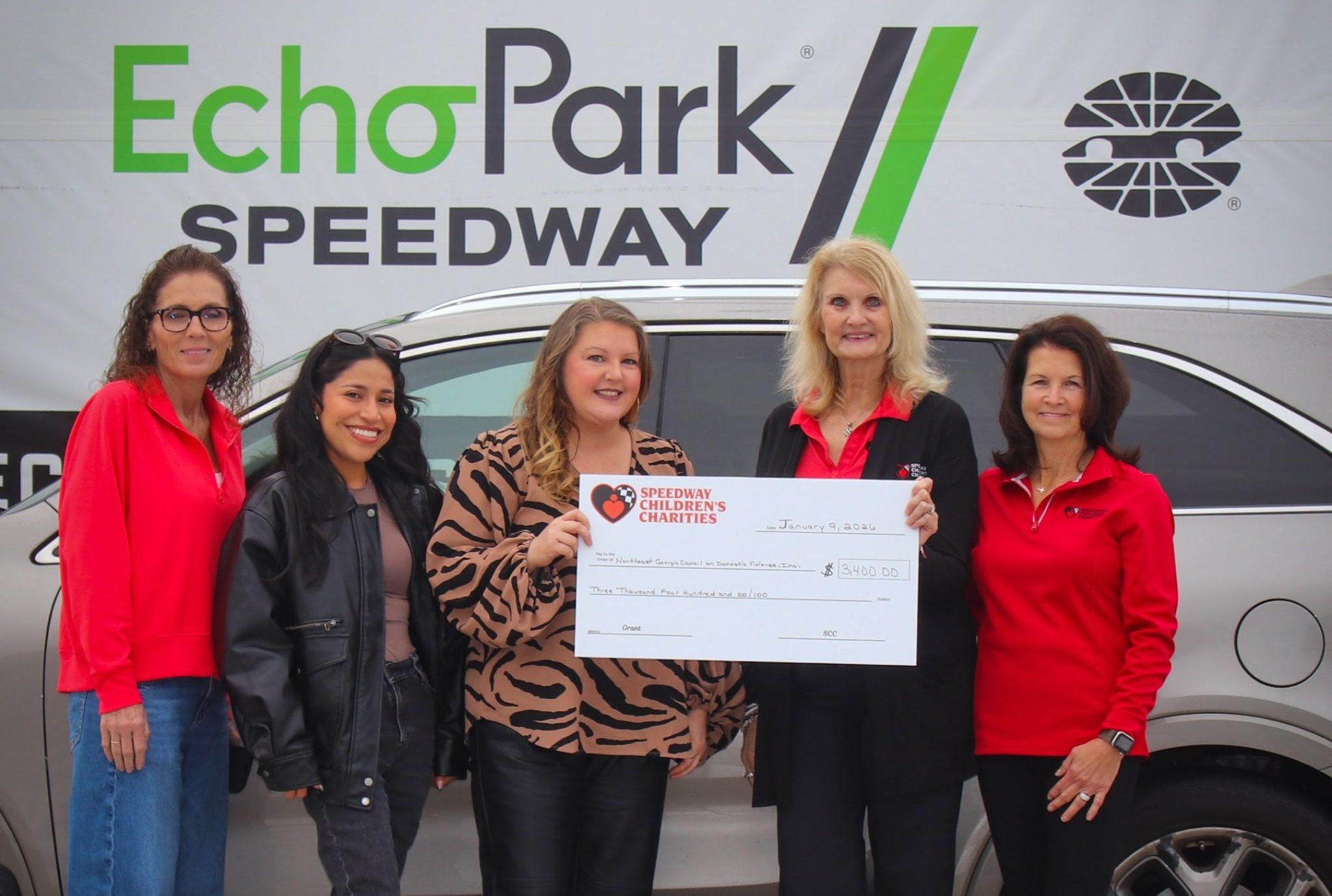
Organizations helping local kids in need received a boost for their causes this morning as Speedway Children’s Charities Atlanta distributed $100,000 in grants.
The charity’s annual Grant Distribution Ceremony benefited 30 local nonprofits which each received a grant in EchoPark Speedway’s victory lane. In total, recipients will use these grants to support various needs of 12,000 kids in metro Atlanta and Georgia. Causes supported include housing assistance for families in crisis, cancer support services, meal programs, and more.
“It’s an honor to help so many nonprofits who are making a difference for thousands of children in our area,” said SCC Atlanta Chapter Director Kathy Bradley. “This is the culmination of a year’s worth of hard work by our volunteers and the generous support of our donors.”
SCC Atlanta holds fundraisers throughout the year in conjunction with EchoPark Speedway events, including its two NASCAR Cup Series race weekends. The chapter also collects donations through standalone initiatives such as Laps for Charity events at the speedway, the Kids Win Clay Shoot, and more.
SCC Atlanta is one of 11 local chapters of Speedway Children’s Charities nationwide. In 2025 alone, these chapters collectively distributed more than $4.9 million to 489 nonprofits, benefiting 268,020 children. Since its inception in 1982, Speedway Children’s Charities has distributed more than $77 million to organizations across the country.
For more information about Speedway Children’s Charities or to learn how to volunteer or donate to your local chapter, visitwww.speedwaycharities.org.
SCC PR
Motorsports
USCS Sprint Cars Added to Bakersfield Speedway Schedule on May 30 and Sept 12 – Speedway Digest

Bakersfield Speedway at Kevin Harvick’s Kern Raceway has added the Ultimate Sprint Car Series to the 2026 schedule. The combined 410 and 360 cubic inch series will hit the one-third mile dirt track on May 30 and Sept 12.
USCS made two stops at Bakersfield Speedway in 2025 with Bakersfield’s Brody Fuson and Camarillo’s Ricky Lewis scoring the victories. The series averaged 26 entries across the two events.
May 30 features California 305 Sprint Cars, American Stocks and National Dwarf Cars.
Western Racing Association vintage racers have been added to the action for the September 12 event along with Hobby Stocks, American Stocks, and Mini Stocks.
Slight division changes have been made to other dates on the schedule as well to prevent conflicts with other dirt tracks in the region.
Tickets for the Winter Clash featuring the season opener for the IMCA championships along with the USAC Western States Midgets on February 20-21 will go on sale on February 1.
For more information on Bakersfield Speedway at Kevin Harvick’s Kern Raceway, visit www.BakersfieldSpeedway.com or follow the speedway on social media. Kevin Harvick’s Kern Raceway is located at 13500 Raceway Blvd, near Enos Ln and Interstate 5 in Bakersfield.
FEBRUARY
20- IMCA MODIFIEDS, SPORT MODS, STOCK CARS, HOBBY STOCKS, AMERICAN STOCKS
21- USAC WESTERN STATES MIDGETS, IMCA MODIFIEDS, SPORT MODS, SOCAL DWARFS
MARCH
7- IMCA MODIFIEDS, SPORT MODS, STOCK CARS, HOBBY STOCKS, AMERICAN STOCKS, MINI STOCKS
20- IMCA MODIFIEDS, SPORT MODS, STOCK CARS, HOBBY STOCKS, AMERICAN STOCKS
21- CALIFORNIA 305 SPRINTS, IMCA MODIFIEDS, SPORT MODS, HOBBY STOCKS, AMERICAN STOCKS
APRIL
11- IMCA MODIFIEDS, SPORT MODS, HOBBY STOCKS, AMERICAN STOCKS, CA LIGHTNING SPRINTS
18- IMCA MODIFIEDS, SPORT MODS, STOCK CARS, HOBBY STOCKS, AMERICAN STOCKS
MAY
2- IMCA MODIFIEDS, SPORT MODS, HOBBY STOCKS, AMERICAN STOCKS, NATIONAL DWARFS
9- CALIFORNIA 305 SPRINTS, IMCA MODIFIEDS, SPORT MODS, STOCK CARS, HOBBY STOCKS
30- USCS SPRINTS, CALIFORNIA 305 SPRINTS, AMERICAN STOCKS, NATIONAL DWARFS
JUNE
13- IMCA MODIFIEDS, SPORT MODS, STOCK CARS, HOBBY STOCKS, AMERICAN STOCKS, SO CAL DWARFS
27- MCGOWAN MEMORIAL – IMCA MODIFIEDS, SPORT MODS, HOBBY STOCKS, AMERICAN STOCKS
JULY
25- IMCA MODIFIEDS, SPORT MODS, STOCK CARS, HOBBY STOCKS, AMERICAN STOCKS
AUGUST
29- MIKE MOSHIER CLASSIC – IMCA MODIFIEDS, SPORT MODS, STOCK CARS, HOBBY STOCKS, AMERICAN STOCKS
SEPTEMBER
12- USCS SPRINTS, HOBBY STOCKS, AMERICAN STOCKS, MINI STOCKS, WRA VINTAGE
26- IMCA MODIFIEDS, SPORT MODS, HOBBY STOCKS, AMERICAN STOCKS, SOCAL DWARFS
OCTOBER
9-10 BUD NATIONALS – IMCA MODIFIEDS, SPORT MODS, STOCK CARS, HOBBY STOCKS, AMERICAN STOCKS, SO CAL DWARFS
NOVEMBER
24- JASON LEFFLER MEMORIAL USAC NATIONAL MIDGETS, SPORT MODS
Bakersfield Speedway PR
-

 Sports3 weeks ago
Sports3 weeks agoBadgers news: Wisconsin lands 2nd commitment from transfer portal
-

 Rec Sports1 week ago
Rec Sports1 week agoFive Youth Sports Trends We’re Watching in 2026
-
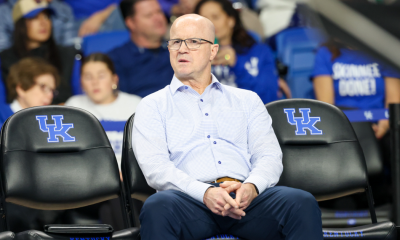
 Sports2 weeks ago
Sports2 weeks agoKentucky VB adds an All-American honorable mention, loses Brooke Bultema to portal
-

 Motorsports3 weeks ago
Motorsports3 weeks agoDr. Patrick Staropoli Lands Full-Time O’Reilly Ride with Big Machine Racing
-

 Rec Sports3 weeks ago
Rec Sports3 weeks agoNBA, Global Basketball Community Unite for World Basketball Day Celebration
-

 Motorsports3 weeks ago
Motorsports3 weeks agoBigRock Motorsports Retains Its Championship Title At ISRL Season 2 Grand Finale In Calicut
-
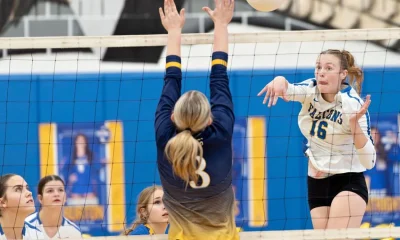
 Sports2 weeks ago
Sports2 weeks ago2025 Volleyball Player of the Year: Witherow makes big impact on Central program | Nvdaily
-
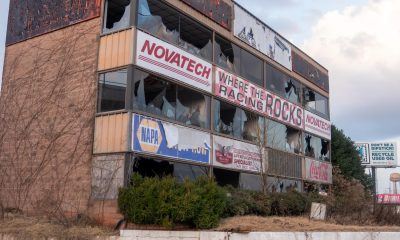
 Motorsports2 weeks ago
Motorsports2 weeks agoBangShift.com IHRA Acquires Historic Memphis Motorsports Park In Millington Tennessee. Big Race Weekend’s Planned For 2026!
-

 NIL3 weeks ago
NIL3 weeks agoInsider Reveals Biggest Reason Behind Colorado’s Transfer Portal Mass Exodus
-
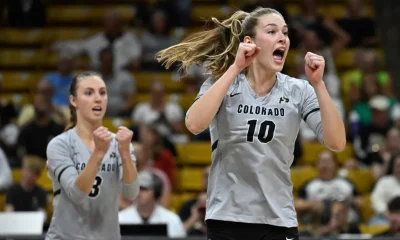
 Sports2 weeks ago
Sports2 weeks agoColorado volleyball poised to repeat success
































